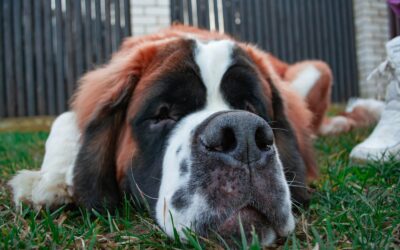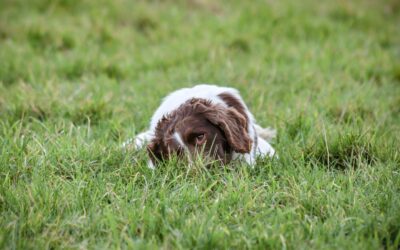If you’re a dog owner, you’ve likely heard of kennel cough. Kennel Cough is a contagious respiratory disease that can affect dogs of all ages and breeds, especially those who frequently interact with other dogs in places like parks, daycare facilities, and boarding kennels. In this comprehensive guide, we’ll walk you through everything you need to know about kennel cough—from its symptoms and causes to prevention and treatment. Our aim is to help you keep your furry friend healthy and happy.
What is Kennel Cough?
The kennel cough infection, also known as canine infectious tracheobronchitis or canine infectious respiratory disease, is a respiratory disease that affects the upper respiratory tract of dogs. It’s akin to a human cold but can be more severe, leading to complications if not treated properly. The most commonly involved organisms include bordetella bronchiseptica bacteria, canine parainfluenza virus, and canine adenovirus type 2.

Kennel Cough Symptoms
Recognizing the signs of kennel cough early can help you seek timely treatment for your dog and prevent the spread of this contagious disease. Some of the most common signs include:
Persistent Cough
The hallmark symptom of kennel cough is a persistent, dry, hacking cough that sounds like a honking goose. This cough can be particularly troublesome at night or after exercise, causing significant discomfort for your dog.
Runny Nose
A runny nose or nasal discharge is another common sign of kennel cough. This discharge may be clear or slightly cloudy and can often be mistaken for a common cold.
Sneezing
Frequent sneezing is another indicator that your dog may have kennel cough. While occasional sneezing is normal, persistent sneezing combined with other symptoms should raise concern.
Eye Discharge
Watery eyes or eye discharge can accompany other respiratory symptoms associated with kennel cough. This eye discharge is typically clear but could indicate infection if it becomes cloudy or discolored.
Loss of Appetite
Affected dogs may show a reduced interest in food, leading to a noticeable loss of appetite. This symptom often coincides with the general feeling of malaise caused by the infection.
Lethargy
Lethargy or a general lack of energy is another sign that your dog may be suffering from kennel cough. If your normally active dog seems unusually tired or uninterested in usual activities, it may be time for a vet visit.
Fever
In some cases, dogs with kennel cough may develop a mild fever. Monitoring your dog’s temperature can help you determine whether they may be fighting an infection.
Being aware of these signs and symptoms can enable you to take quick action to ensure your dog’s health and well-being. If you notice any combination of these signs, it’s essential to consult your veterinarian for an accurate diagnosis and appropriate treatment plan.

Causes of Kennel Cough
Kennel cough spreads through close or direct contact with infected dogs. This typically happens in environments where dogs congregate, such as dog parks, grooming salons, daycare facilities, and boarding kennels. The disease can also spread through shared food and water bowls, toys, and even airborne droplets from coughing or sneezing dogs.
Why and How Do Dogs Contract Kennel Cough
Is kennel cough contagious? Yes, because the bacteria and viruses that cause it can survive in the environment for extended periods. This means that even if an infected dog is no longer present, the pathogens can still pose a risk to other dogs. Therefore, it’s crucial to isolate affected dogs until they fully recover to prevent the spread of infection.
Risk Factors
Certain factors can increase the risk of contracting kennel cough. These include:
-
Frequent attendance at dog parks, daycare facilities, or boarding kennels
-
Participation in dog shows or other events where multiple dogs gather
-
A compromised immune system due to age or other health conditions
Kennel Cough and Older Dogs
Older dogs are particularly susceptible to kennel cough due to their weakened immune systems. They are also more prone to developing complications such as pneumonia, which can be life-threatening. Therefore, it’s essential to monitor older dogs closely for any signs of respiratory distress.

Diagnosing Kennel Cough
If you suspect your dog has kennel cough, a visit to the veterinarian is essential. The vet will conduct a physical examination and may recommend diagnostic tests such as chest X-rays, blood tests, or cultures to identify the specific pathogens involved.
The Role of the Veterinarian
Your dog’s veterinarian plays a crucial role in diagnosing and managing kennel cough. They can provide guidance on the best course of treatment, including whether antibiotics, cough suppressants, or other medications are needed.
Common Misdiagnoses
It’s worth noting that kennel cough can sometimes be mistaken for other respiratory conditions such as canine influenza or canine distemper virus. Therefore, accurate diagnosis is crucial for effective treatment.

Treatment Options for Kennel Cough
Treatment for kennel cough typically involves supportive care aimed at relieving symptoms and preventing secondary bacterial infections. Most dogs will recover within three weeks with appropriate care.
Basic Supportive Care
Basic supportive care includes ensuring your dog stays hydrated, gets plenty of rest, and eats a nutritious diet. Providing a humidified environment can also help soothe irritated airways.
Medication Options
In more severe cases, veterinarians may prescribe antibiotics to combat secondary bacterial infections or cough suppressants to alleviate persistent coughing. Nonsteroidal anti-inflammatory medications may also be recommended to reduce inflammation in the airways.
When to Seek Immediate Veterinary Attention
If your dog shows signs of severe illness—such as difficulty breathing, rapid breathing, or signs of systemic infection like lethargy or loss of appetite—seek immediate veterinary attention. These symptoms could indicate complications that require urgent care.

Preventing Canine Parainfluenza Virus
Prevention is always better than cure, and there are several steps you can take to reduce the risk of your dog contracting kennel cough.
Vaccination
One of the most effective preventive measures is vaccination. The kennel cough vaccine protects against the most commonly involved organisms, including bordetella bronchiseptica and canine parainfluenza virus. It’s essential to keep up with your dog’s vaccination schedule to maintain immunity.
Avoiding High-Risk Environments
Try to avoid high-risk environments where kennel cough is more likely to spread. If you must take your dog to a park, daycare, or boarding facility, ensure that these places have strict hygiene and health protocols in place.
Good Hygiene Practices
Maintaining good hygiene practices can significantly reduce the risk of kennel cough. This includes regularly cleaning your dog’s food and water bowls, toys, and bedding. It’s also a good idea to wash your hands after handling other dogs to prevent the spread of pathogens.

Essential Vaccines for Dogs Before Visiting Facilities Like Snouts and Stouts Indoor Dog Park and Bar
Ensuring your dog is fully vaccinated before visiting communal spaces like Snouts and Stouts Indoor Dog Park and Bar is crucial for their health and the well-being of all dogs interacting in these environments. Below are the essential vaccines your dog should have:
Rabies Vaccine
The rabies vaccine is not only a legal requirement in many jurisdictions but also essential for protecting your dog from this fatal viral disease. Rabies is transmitted through the saliva of infected animals, often through bites. Make sure your dog’s rabies vaccination is up to date.
DHPP Vaccine
The DHPP vaccine is a combination vaccine that protects against four critical diseases: Distemper, Hepatitis (caused by adenovirus), Parvovirus, and Parainfluenza. Each of these diseases can be severe and, in some cases, fatal. This vaccine is typically administered in a series of shots during puppyhood, followed by periodic boosters.
Bordetella Vaccine
The Bordetella vaccine specifically targets one of the primary bacteria that cause kennel cough. Given the highly social nature of facilities like dog parks and indoor play areas, this vaccine is crucial in preventing the spread of kennel cough among dogs.
Leptospirosis Vaccine
Leptospirosis is a bacterial infection that can be transmitted through contact with contaminated water or soil. The Leptospirosis vaccine protects against this potentially severe disease, which can cause kidney and liver failure.
Canine Influenza Vaccine
Canine Influenza, or dog flu, is a highly contagious respiratory infection. The Canine Influenza vaccine protects against both the H3N8 and H3N2 strains of the virus. Given the close interactions in indoor dog parks, vaccinating against canine influenza can help prevent outbreaks.
Lyme Disease Vaccine
Although not mandatory for all dogs, the Lyme disease vaccine is advisable if your dog frequents areas prone to ticks. Lyme disease can lead to severe health issues, including arthritis and kidney problems. Check with your veterinarian to see if this vaccine is recommended for your area.
Coronavirus Vaccine
The Canine Coronavirus primarily affects younger dogs and can cause intestinal issues. While it’s not as commonly required as other vaccines, it’s worth discussing with your veterinarian, especially if your dog will be in close contact with many other dogs.
Additional Vaccines
In some cases, your veterinarian might recommend additional vaccines based on your dog’s health history, lifestyle, and the specific requirements of the facility you’ll be visiting. Always consult your vet to ensure your dog is fully protected.
Keeping your dog up-to-date with these vaccines not only safeguards their health but also ensures a safer and more enjoyable experience for all visitors to places like Snouts and Stouts Indoor Dog Park and Bar. Before visiting, always check with the facility for any specific vaccination requirements they might have

The Importance of Community Awareness
Raising awareness about kennel cough within the dog owner community is crucial for preventing outbreaks. Sharing information about symptoms, prevention, and treatment can help keep all our furry friends safe and healthy.
Sharing Information
Educate fellow dog owners about the risks and signs of kennel cough. The more people are aware, the easier it will be to contain and manage the disease.
Reporting Outbreaks
If you become aware of a kennel cough outbreak in your area, inform your veterinarian and other dog owners. Early reporting can help mitigate the spread of the disease.
Community Support
Engage with local dog owner groups or online communities to share tips and experiences. Support from fellow dog lovers can make managing kennel cough less stressful.

Conclusion
Kennel cough is a common but preventable illness that can affect any dog, particularly those exposed to other dogs in social settings. By understanding the symptoms, causes, and preventive measures, you can help protect your dog from this highly contagious disease. Remember, early diagnosis and treatment are key to ensuring a quick recovery.
If you’re concerned about kennel cough or need more personalized advice, don’t hesitate to consult your veterinarian. By staying informed and proactive, you can keep your furry friend healthy and happy.
For more information on dog health and wellness, sign up for our newsletter or schedule a consultation with one of our expert veterinarians today. Together, we can ensure your dog enjoys a long, healthy life.




